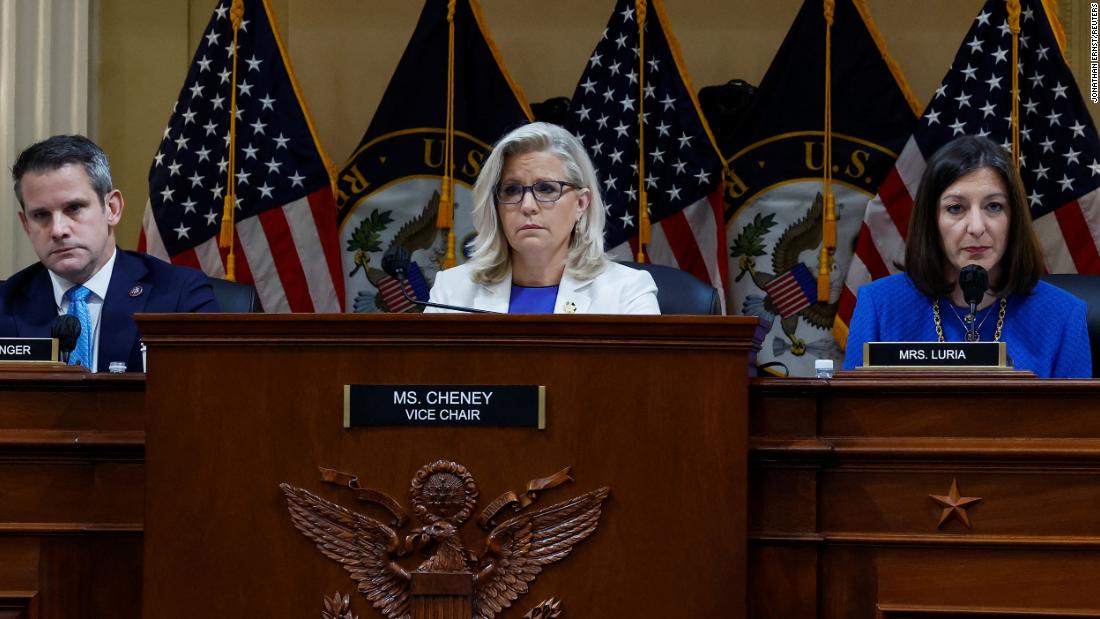

Adam Wollner: Between the economy, abortion and a whole host of other issues, there’s obviously a lot on voters’ minds heading into the midterm elections. How do you see January 6 factoring into the equation?
Sarah Longwell: I’ve been conducting focus groups almost weekly for the last two years, and there’s no doubt the economy, inflation, crime and the cost of health care are top of mind for most voters. For much of 2022, it looked like the November election would be a straightforward referendum on Joe Biden and the Democrats. Republicans expected to use frustration with the economy to bring college-educated suburban voters back into the fold. But the combination of the January 6 hearings, the Dobbs decision, and the GOP nominating extreme candidates who campaigned on the lie that the 2020 election was stolen have cost Republicans their edge in many statewide races. The January 6 hearings — which have been extremely well executed — have put Donald Trump’s election lies on trial. And GOP candidates running on those lies are less palatable to swing voters.
Longwell: Trump himself may not be on the ballot, but the forces he unleashed in the Republican Party certainly are. While Republican leaders had hoped that the 2022 election would be about kitchen table issues that favored Republicans, Trump — and the candidates he endorsed in GOP primaries — keep looking backward at the 2020 election. This failure to look forward and the wallowing together in Trump’s grievance politics and election lies have actually made the January 6 committee more relevant, not less. It is Trump and the candidates who emulate him that make swing voters and right-leaning moderates queasy. By endorsing in so many primaries and ensuring that the GOP field is full of cranks and conspiracy theorists, Trump has managed to put himself on the ballot for the voters he repels.
Longwell: Primarily, it was shifting their perception of Trump’s potential electability if he were the GOP nominee in 2024. Prior to the January 6 hearings, you’d have half or more of any focus group of Trump voters saying they wanted him to run again in 2024. After the hearings began, those numbers shifted dramatically. I want to be clear that I don’t think that it’s because Republican voters are watching the hearings and being persuaded that Trump is a bad guy who did a bad thing. They mostly aren’t watching the hearings, and they still like Trump fine. I describe it more as a “seeping in” rather than “breaking through.” They’re a little bored of the 2020 election grievance, and they definitely want to move on from conversations about January 6. This has led them to start thinking about other options in 2024. There are lots of Ron DeSantis fans in the focus groups and many other potential candidates that people are interested in hearing more from. After all, as these voters tell me, if Trump is the nominee and wins, he only gets four years in the White House. But if it’s a fresh, new candidate, they could have eight years.
Wollner: Has there been a specific moment or finding from the January hearings so far that you’ve seen resonate most with voters?
Longwell: Cassidy Hutchinson was the real breakout moment. There was a lot of intrigue around the emergency hearing. Even before she testified in person, she was already delivering some of the key things that seemed to stick with voters, like pardons. People are suspicious about the pardons. The fact that there were members of Congress and Trump’s inner circle soliciting pardons is a red flag that people were doing things they shouldn’t have been doing.
Wollner: Looking ahead to 2024, do you seen any room for an anti-Trump Republican like Liz Cheney to run for president as a spoiler candidate?
Longwell: I don’t think Liz Cheney has any interest in being a spoiler candidate. I think she understands that running as a third-party independent would be more likely to help re-elect Trump than keep him out of the White House. I think there is a very narrow lane in a GOP primary for Liz to try and appeal to the roughly 30% of Republicans who don’t believe the 2020 election was stolen. But I don’t think her goal is to win. It’s to prosecute a case against Trump directly to a GOP audience. She’ll most likely lose. But she’ll go hard at Trump in ways that weaken him further with swing voters, which is Trump’s enduring vulnerability.
